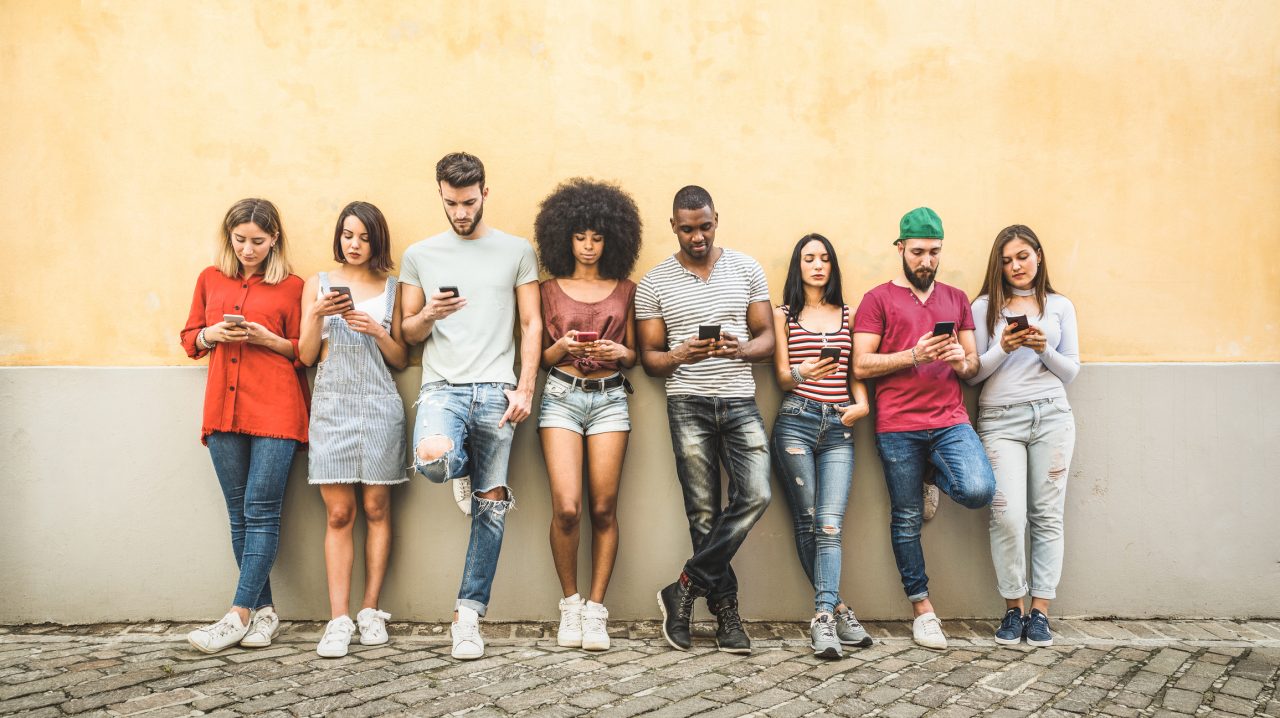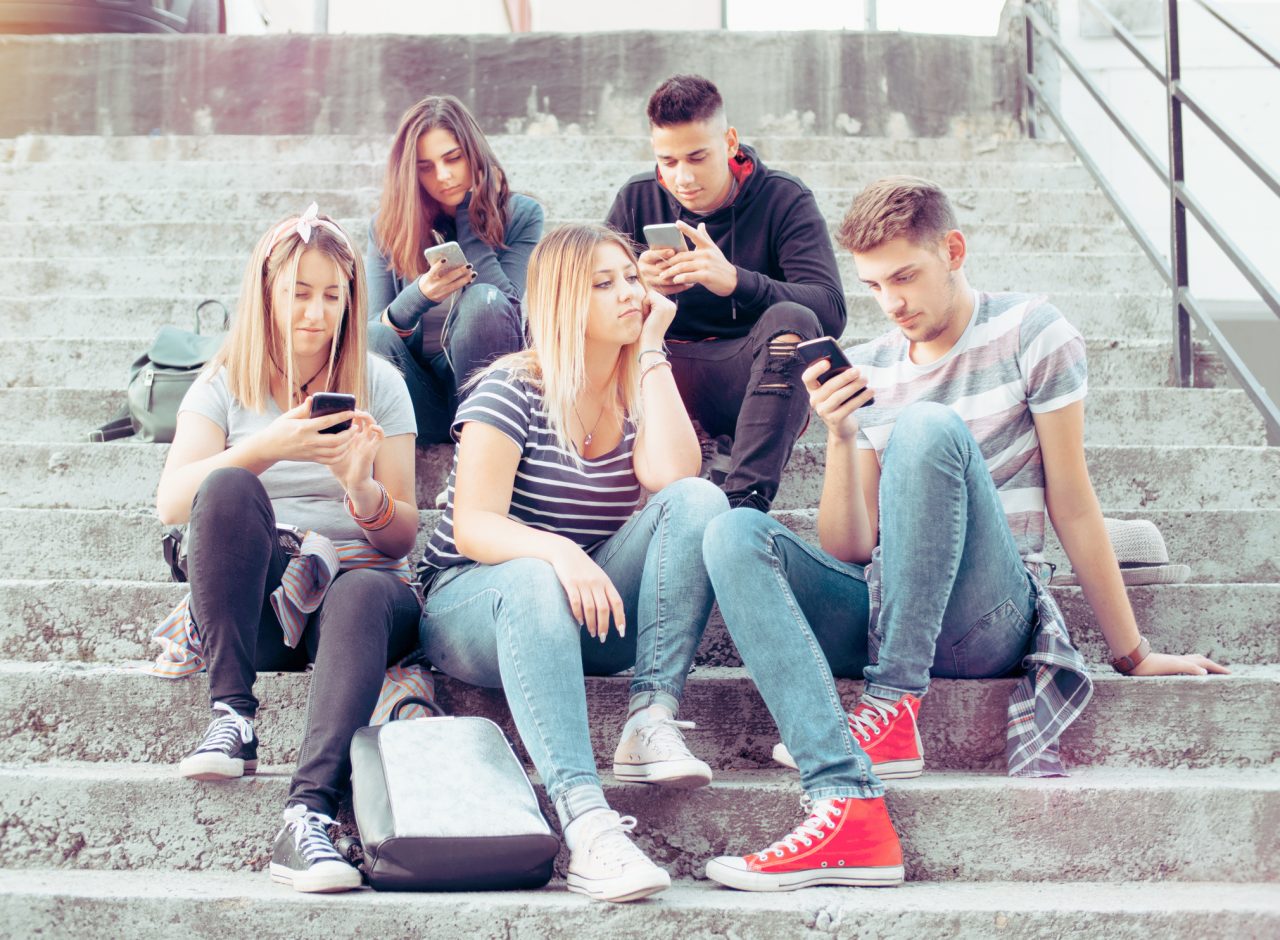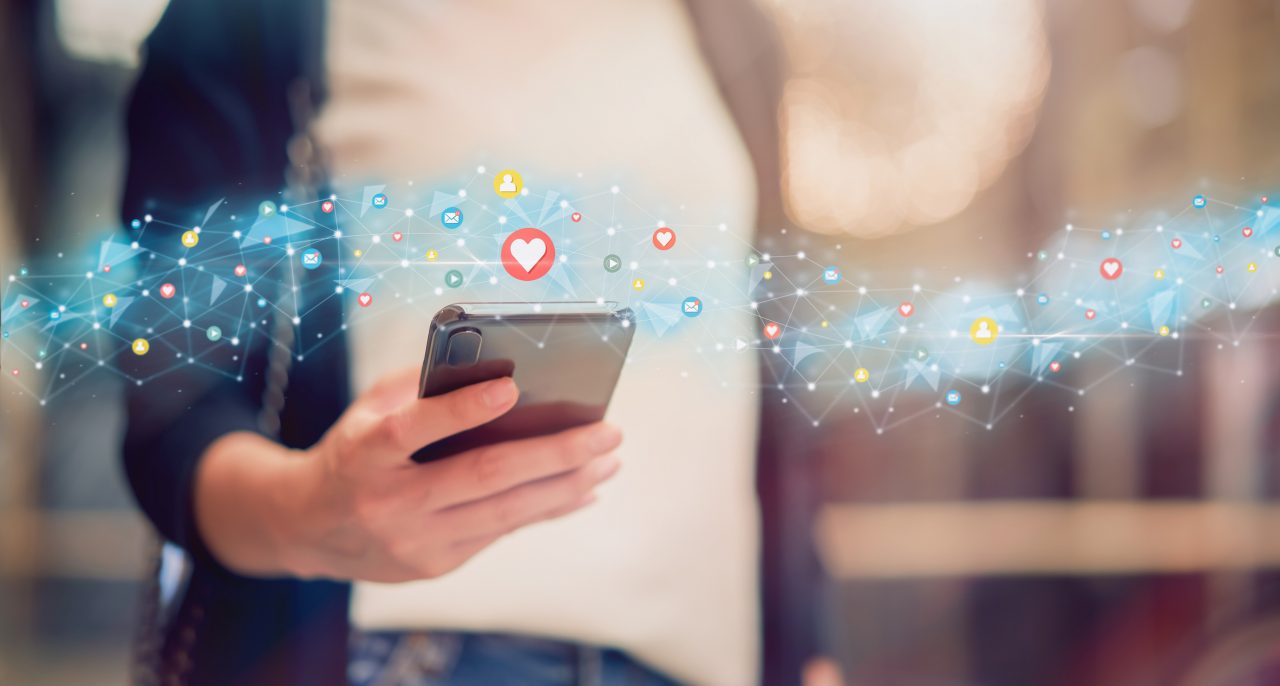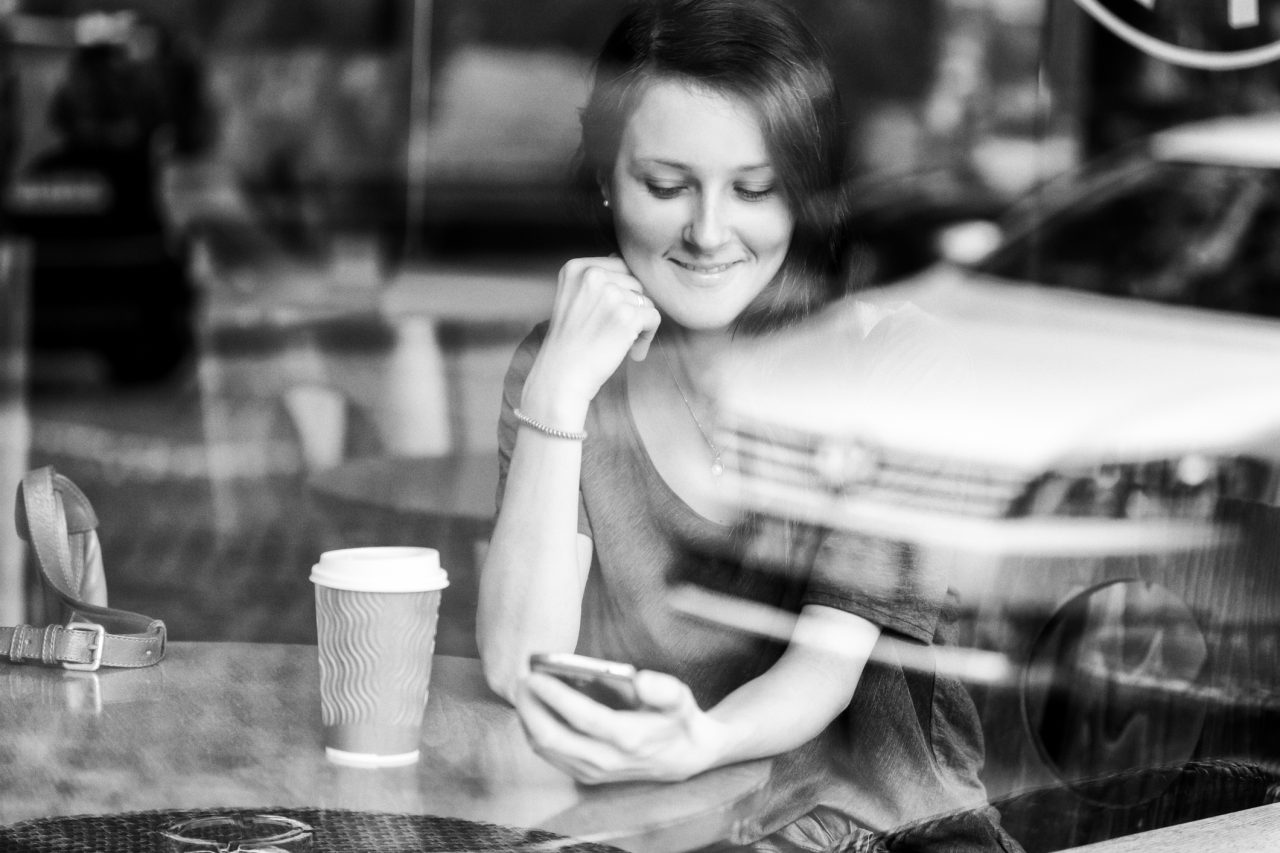Does social media make us more antisocial?
You have probably heard the criticism of social media before. It is a waste of time, invasive and confusing. It can destroy your private life and so on. But can it actually make us antisocial? Is that true?

Social media and addiction
As early as in 2010, psychiatrists said that social media addiction was a real phenomenon and should be classified as a clinical disorder. The psychiatrists presented a study of people who spent five hours a day checking Facebook. The people from the study rarely left the house, lost several jobs, and on several occasions they interrupted the therapy session to check updates. In other words, they often avoided social contact with the therapist in favor of communication on social media. But why? Successful interaction means that we experience a real reward in the brain.

Jente uten smarttelefon mens alle andre i gjengen rundt henne sitter opphengt i hver sin smarttelefon
Reward for the brain
There is an explanation for the reward we get from social interaction with others. Successful interaction means that we experience a real reward in the brain. The release of oxytocin gives a general feeling of well-being. Oxytocin is a hormone and is known as the love or kindness hormone. Dopamine is also released, which in turn gives a rush of pleasure. Dopamine is released in the brain when we experience a positive social setting, and gives us a rush of joy. Social media triggers the neural pathway for reward in the brain and can lead to addiction.

En vennegjeng som ler og har det morsomt samme i en by
Easier reward
One of the reasons for addiction is that the social “rewards” via social media are much easier to get without effort than a “normal” interaction demands. Drugs work in the same way in principle, in that they trigger the neural pathway for reward, without you having to go to the trouble of actually doing what the brain thinks qualifies as a reward. This becomes a shortcut to reward the brain. The brain will then adjust over time and expect these pleasant signals. Eventually, the brain will disrupt the areas that control obstacles or self-control in order for the signals to continue. These addictions are risky because they can make a person less empathetic.

Dame som holder smarttelefon med sosiale medier ikoner
Control freak
Another side of social media is that we have greater control over our interactions online, because we can decide how we want to be viewed by others. You can upload only nice pictures, delete stupid comments, check spelling, share good opinions and so on. This satisfies an underlying process in the brain called “self-production”. This means that we are constantly concerned with presenting ourselves in the best possible way to others, so that there is a greater possibility that others will like us.

Tenåringsjente som spiller basketball

Dame som sitter på en cafée og ser på smarttelefon
Sources:
- Burnett, Dean (2018):
Do Social Networks Make Us Antisocial?
- Vitenskapens guide til lykken (2018)
Orage Forlag AS
Media Rights:
-
-
Getty Images
-
Getty Images
-
Getty Images
-
Getty Images
-
Getty Images
-
Getty Images
-
NRK
-
Getty Images
-
NRK
-



Social interaction
Before we move on to answer the question, we need to define what is meant by social networks and interaction. Social interaction, both online and face-to-face, has a huge effect on cognitive ability, for example how we think, learn and recognize. Brain reactions when we are in groups or in a network show some interesting findings.
According to studies of images of the brain, there is more activity in the brain when people think about being part of a group. When we think about ourselves, our identity and are aware of which social groups we feel we belong to, the areas in the frontal lobe show high activity. This suggests that our social interactions form a large part of our identity. Humans need social contact.
On the other hand, too much social interaction is not good either. Being social is mentally demanding. Getting involved with another person demands a lot of work for the brain and is a mental effort. It explains the contradiction in that people need both social interaction and time alone.
But are we able to take breaks when we should be constantly available?
1 / 3
Tenåringsgjeng og sosiale medier